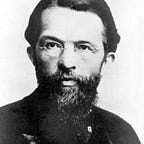Economic Effects Of War
Some say: “War is good for the economy because it provides jobs and generates technology.”
Analysis: jobs
The purpose of an economy is providing for the satisfaction of consumers. This means a job is only valuable insofar it improves on the value of resources, as judged by consumers. Given that jobs created for war do not produce consumer goods, or producer goods that are used for consumer goods, those jobs do not benefit the economy. In order to provide the jobs involved in a war-effort, resources and manpower are taken away from the economy; making the economy worse off with less goods to offer and higher prices.
The people who lose their life in a war are not just temporarily (as is the case for all war workers) but permanently taken away from the economy.
The resources that are lost in a war are both those taken away from society to engage in a war-effort, but also the resources that are destroyed in the conflict itself. Non-participant civilians and their property are also on the receiving end of destruction and death.
Under a situation of total war where all people are mobilized there would be no private sector, and all things consumed to live would be those things created under the command structure. People would almost all eat the same things and have the same low standards of living. This ‘economy’ would pale compared to what it was beforehand.
Even though war cannot improve the economy as a whole, it can improve the wealth of some at the expense of others. If you produce tools for war then you could stand to gain from the resources that are channeled from other parts of the economy to your venture.
Analysis: technology
Even though technology can be generated in a war-effort, technology is also generated in a consumer-oriented economy. In order to make a profit and sustain their operations, producers develop goods and services that others wish to trade for. The challenge of entrepreneurship is to improve on resources in such a way that consumers are willing to give up more money than was incurred in costs. In order to do this, producers develop technological skills and knowledge. At the same time profit-areas attract competitors who try to do the same thing but better.
And then there is the general competition where all consumer goods compete with all other consumer goods for buyers, which forces everyone to stay on top of their game.
What producers do in order to secure profits in the future is commit resources to short-term and long-term investments; depending on the amount of profit and risk they perceive from them.
Sometimes they commit resources in cooperation with other producers for a shared gain.
If producers make bad estimations and don’t invest and produce efficiently and intelligently, they stand to lose all their profits and their capital. This capital then has a chance to be better utilized by others.
In order to understand the true effect that resources and manpower involved in a war-effort constitutes, we must consider what those things could have generated were they not shifted away.
In a peaceful economy, research and development is carefully aligned with current and future consumer desires, and the capital is distributed according to those who use it the smartest and most responsibly. We must expect a better economic result from that situation.
The prior mentioned effects occur at both sides of a battle. What then also must be considered is the lost positive effect that trading under the division of labor between the groups could have had on choices, prices and technology in their economies.
